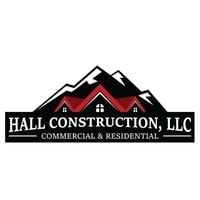
Hall Construction
Hall Construction
We pride our company on reliability, great communication, integrity, and quality work. We strongly believe in giving our absolute best in all the work we perform. We are experts and will always keep you educated about the work process. We look forward to earning your business.
"Hall Construction worked with us to build a new addition. They first removed a flat roof enclosed porch. A new addition was built on the existing foundation with new roof trusses and metal roofing and insulated walls and ceilings. New electrical service was added along with a mini split HVAC system. New flooring, drywall and windows make the room one of our favorite spaces. We also had Hall Construction replace the metal roof on our 80 year old barn. Both projects were completed in the timeframe promised and both were under budget. It was great to find a contractor that helped us get our projects finished. I would not hesitant to hire them again for any other projects that we might have in the future. I highly recommend Hall Construction for any building projects that you might have. My wife and I appreciate the quality work from Hall Construction."
Karl S on July 2025
We pride our company on reliability, great communication, integrity, and quality work. We strongly believe in giving our absolute best in all the work we perform. We are experts and will always keep you educated about the work process. We look forward to earning your business.
"Hall Construction worked with us to build a new addition. They first removed a flat roof enclosed porch. A new addition was built on the existing foundation with new roof trusses and metal roofing and insulated walls and ceilings. New electrical service was added along with a mini split HVAC system. New flooring, drywall and windows make the room one of our favorite spaces. We also had Hall Construction replace the metal roof on our 80 year old barn. Both projects were completed in the timeframe promised and both were under budget. It was great to find a contractor that helped us get our projects finished. I would not hesitant to hire them again for any other projects that we might have in the future. I highly recommend Hall Construction for any building projects that you might have. My wife and I appreciate the quality work from Hall Construction."
Karl S on July 2025












